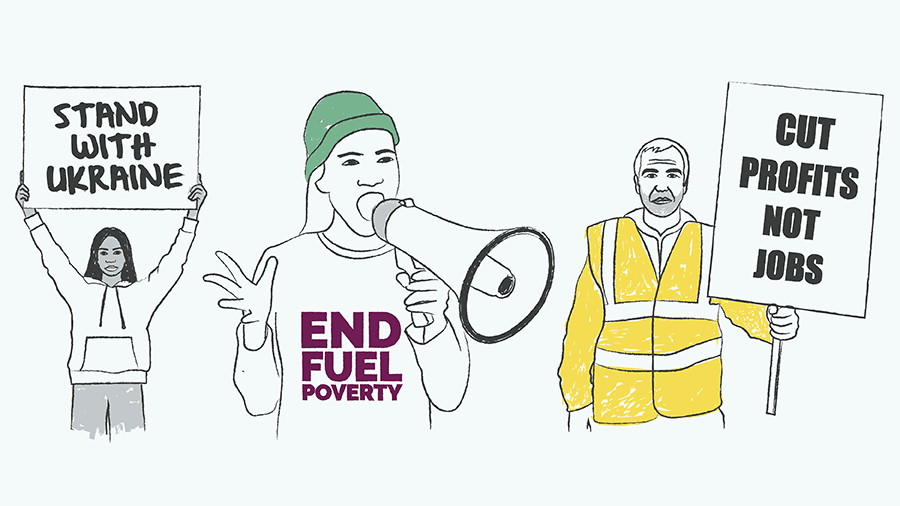
You’d be forgiven for thinking that you fell asleep one night and woke up in 1978, our last winter of discontent. Many will wonder whether this winter will be even worse.
Businesses need to plan and that requires some certainty. No one can offer that right now, but we can look at the causes and symptoms of our economic affliction, and consider how long and how bad it’s likely to be, and whether there might just be a case for optimism.
The bear (or Mr Negative): Strikes, sticky inflation & prolonged recession
There’s no sugar coating this: the economic outlook is not good, and several aspects of our current miseries are likely to be prolonged.
Energy prices will almost certainly remain elevated due to the Ukraine war, continuing to squeeze consumer spending and hike business costs. When this happened in the 1970s, there was a prolonged global slowdown, and we can expect something similar here. That, alongside the relative strength of the US economy, will likely continue to result in sterling weakness against the dollar, keeping UK costs high.
This means the pressure on household budgets will likely persist. That has resulted in the worst industrial relations in decades, which we shouldn’t expect to fade away any time soon, or to necessarily stay confined to transport and the public sector.
The public has been broadly sympathetic to strikers, and the more successful the industrial action is, the more workers might ask whether union membership might be in their own interests.
Job market conditions don’t help. There are few jobseekers, yet simultaneously a labour shortage, owing to the hundreds of thousands of workers who have left employment since Covid – mostly over-50s, mostly for health reasons. It means it’s harder to replace people, giving more power to strikers than might otherwise be expected during a squeeze.
Despite the hiring freezes that are either on their way or already in place, persistent skills shortages will also make it hard to keep salary costs down for employees at the upper end of the job market.
Altogether, this means there is a risk that inflation becomes ‘sticky’ as a result of a wage-price spiral, which means more interest-rate misery for households with mortgages, highly leveraged businesses and public finances alike.
The bull (Mr Positive): Opportunity in crisis
The bleakness of current conditions makes it a stretch to be unabashedly optimistic (yes there’s rampant inflation, but at least it’s not deflation…). But there are some green shoots and silver linings if you look hard enough.
Inflation may not become sticky – falling spending power due to the cost of living crisis and hawkish monetary policy could quell the pressure to increase wages. Strike action may have some success but could well end in compromise.
The energy crisis might ease – global gas prices have actually begun to fall over the past few months – and more importantly could force a much-needed acceleration in the green energy transition, or dare we even say it, the rise of nuclear fusion.
This in turn could eventually provide cheaper, cleaner power in the long term than before the crisis – a meaningful supply-side reform if there ever was one.
There’s even a case that political uncertainty, which has had profound economic consequences, cannot go on forever. If the Conservative Party causes itself enough self-harm, it should usher in an era – like 1945-1979, where Labour is the presumed party of government. Whatever your political colours, at least it would mean stability.
What we can do
Most of these things are speculative, but there are some things that businesses can actively do to make a silver lining out of this return to late 1970s gloominess.
Crisis, change and recession can bring opportunity, in a Darwinian sense. As weaker businesses struggle, the strongest, most adaptable firms can thrive and even emerge from the recession in a better position than they otherwise would have been. With them, the economy can grow back stronger as well.
To achieve this, leaders will need to focus on the basics – cash flow and cost control, satisfying customer needs, generating a return on invested capital, and growth.
They will need to treat their people well, in the knowledge that the quality and resilience of their staff is ultimately the quality and resilience of the organisation. They will need to keep their head up for opportunities as well as handling the hard choices of the day-to-day.
Times may be tough, and the winter may be bleak, but eventually spring will come.
















